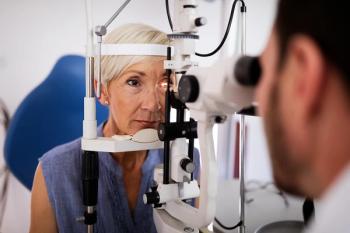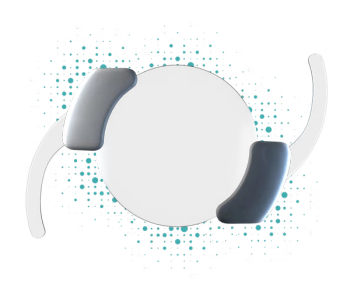
What you missed in glaucoma, dry eye, myopia, and more at CCS 2025
Presenters from the Collaborative Care Symposium 2025 give their key takeaways from their presentations.
During this year's virtual Collaborative Care Symposium, ODs and MDs discussed the latest developments in their fields and offered tips for successful comanagement. In case you missed it, Optometry Times has compiled highlights from each specialty that you can take home to your practice.
Dry eye
For dry eye, Mitch Ibach, OD, FAAO, advocated for a contemporary approach to treating and managing the disease.
"The key takeaway is: Use prescription therapies that target the underlying cause of that patient's dry eye," he said. "Whether that's inflammation, whether that's evaporation, whether it's a situation where a patient has nocturnal lagophthalmos and they need to have something at night, ultimately attack what's causing their dry eye."
Keratoconus
Keratoconus (KC) treatment has come a long way in the past few decades. Peter Hersh, MD, emphasized the importance of early detection and treatment.
"Again, to reiterate the importance of early detection, the importance of close collaboration between practitioners, be it in that detection or subsequent treatment, because the KC patient is going to need specialized care, really, for the rest of their lives," Hersh said. "They need to be monitored to make sure there are no changes. They need to be treated properly, be it with contact lenses or surgery or other modalities to ensure their best vision, and even as they get older, for instance, if they need cataract surgery, this brings new challenges that can now be addressed to even make the results of cataract surgery much better. In particular, many of these patients, as they get older, are no longer able to really manipulate their contact lens well. So other types of innovations, again, things like CTAK or even topography-guided PRK, which can both enhance the curvature of the cornea and give a better optical focus, can enhance patients before cataract surgery, so their cataract surgery goes better.
"So again, the close collaboration in choosing these procedures and properly preparing these procedures and properly understanding KC so all the doctors can be working together to give the best outcome is what's really important over the next years and certainly decades to come."
Retina
For retinal disease management in preoperative cataract and refractive surgery, Carolyn Majcher, OD, FAAO, stated that a holistic, collaborative approach can ensure patient care success.
"I think it's really important that we perform a thorough retinal examination prior to considering referring a patient for either refractive or cataract surgery, and ideally evaluating the periphery under dilation, I think it's important," Majcher said. "If we're seeing peripheral lesions, they may require barrier laser or prophylactic laser treatment prior to undergoing surgery to prevent a retinal detachment from forming. Patients who have certain macular diseases, say, like epiretinal membranes, macular degeneration, like vitreomacular traction syndrome, setting realistic expectations for post surgery. Vision outcomes are really, really important, but also avoiding diffractive premium IOLs, I think, is important in choosing either a monofocal IOL or a light-adjusted IOL, or potentially enhance the focus IOL would be probably a better option for a patient with macular disease. I think doing macular OCT is absolutely critical to try to detect really early macular pathology that could affect the visual outcome."
Myopia
Erin Tomiyama, OD, PhD, FAAO, advised ODs to individualize treatment and stay updated when it comes to myopia management.
"One takeaway is definitely to just do myopia management," she said. "There are people that I think are hesitant to do it because they don't feel confident in knowing all the literature and knowing all the facts. I think just doing it and making sure that you're obviously staying on top of it as best you can in terms of being up to date with the treatment options. Just prescribing or at least referring to somebody locally who does, because there's a lot that can be done that should be done sooner rather than later. So we need to capitalize on the time frame, so getting practitioners to just do myopia management, practice myopia management. I think that's a big takeaway.
"Hopefully one of the other takeaways is just knowing pros and cons of different treatment options. So which treatment options are available to you, where you might see success with one vs the other to help make that clinical decision a little bit easier when you have the patient in the chair."
Glaucoma
Ibach also emphasized the importance of interventional approach and collaborative care regarding glaucoma management and minimally invasive glaucoma surgery (MIGS).
"Don't miss the opportunity of minimally invasive glaucoma surgery at the time of cataract surgery," Ibach said. "That is a time stamp in that patient's life to not only take out the cataract and help them see better, but free up some tools to treat their glaucoma at the same time. So don't miss that patient opportunity."
Newsletter
Want more insights like this? Subscribe to Optometry Times and get clinical pearls and practice tips delivered straight to your inbox.




























